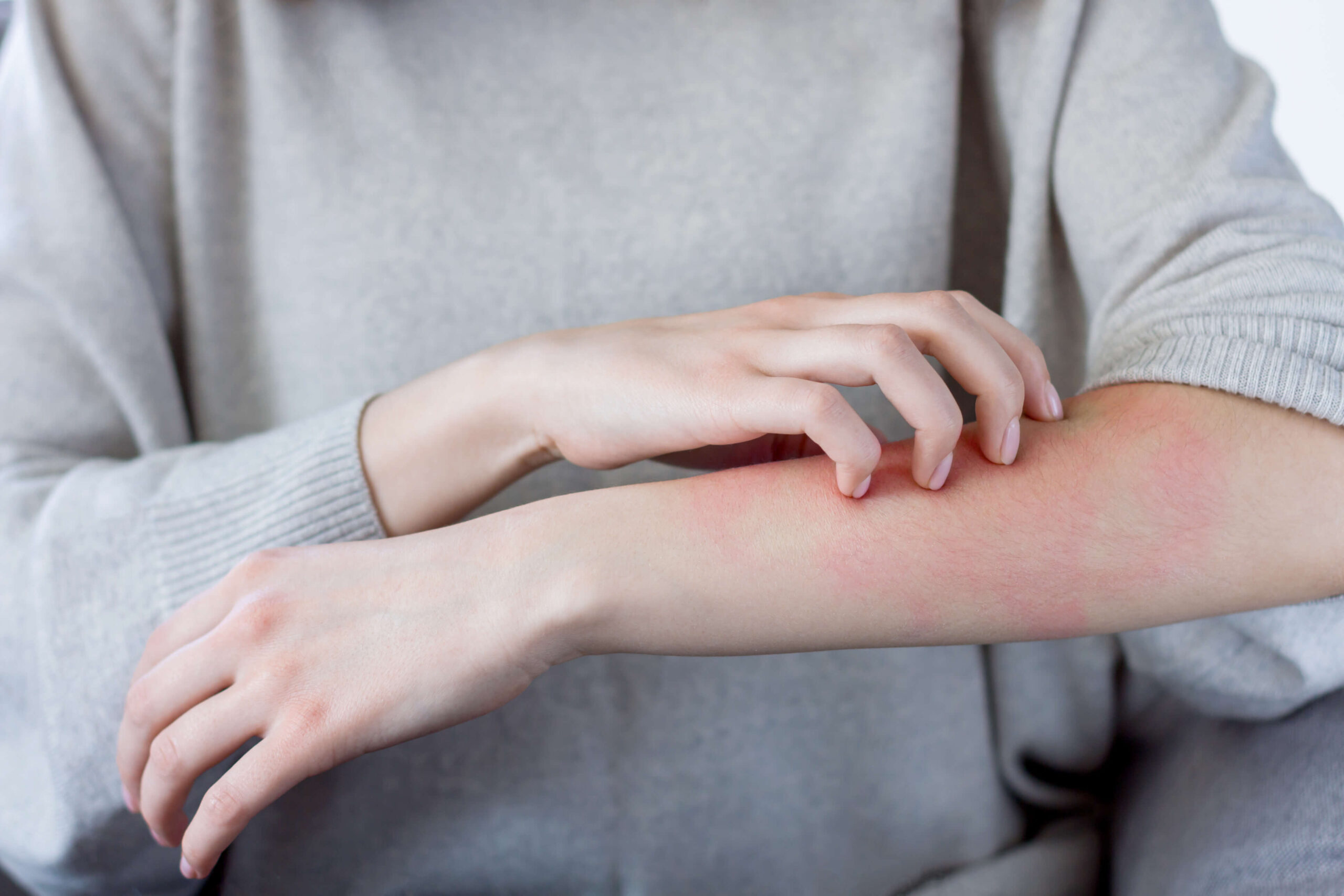Eczema affects millions of people worldwide. According to the World Health Organization, it affects up to 15% of children and 2-10% of adults globally. While it can be a frustrating condition to deal with, understanding triggers that cause eczema flare-ups can help manage symptoms and improve your quality of life.
A weakened skin barrier, exposure to irritants and allergens, and stress are believed to be contributing factors to Eczema.
In this article, we will explore the itchy truth about eczema and discuss various triggers that can cause or worsen the condition, based on scientific research and dermatological advice.
Causes of eczema
Both genetics and environmental factors can play a crucial role in the development of eczema.
A family history of eczema can increase the likelihood of developing the condition, as certain genes have been identified to be associated with the disease, affecting both the immune system and the skin’s barrier function.
Exposure to environmental triggers such as irritants, allergens, and stress can also lead to the onset or worsening of eczema symptoms.
A weakened skin barrier can also contribute to the development of the condition.
More On Weakened Skin Barriers
One can develop a weakened skin barrier from several factors, including genetics, aging, and environmental factors. Some are born with a naturally weaker skin barrier, while others may develop it over time due to exposure to irritants, frequent use of harsh soaps or hot water, or environmental factors such as cold or dry air. In addition, other medical conditions such as psoriasis, or rosacea can also weaken the skin barrier.
To help maintain a healthy skin barrier, avoid harsh skin care products, use gentle cleansers, moisturize regularly, and protect your skin from environmental factors such as prolonged sun exposure and extreme weather conditions.
While there is no known cure for eczema, managing symptoms can be achieved through proper skin care, avoiding triggers, and using medication as prescribed by your dermatologist.
Eczema Symptoms & Triggers
Symptoms
Eczema can present itself in several ways, including:
- Itching: One of the most common symptoms of eczema, can be severe and persistent, leading to sleep disturbances and decreased quality of life.
- Dryness and Scaling: Your skin may become dry, scaly, and rough to the touch. This can lead to cracking and peeling, which can be painful and unsightly.
- Redness: The affected skin can become red, inflamed, and swollen. This can be particularly noticeable on the face, neck, and hands.
- Cracking and Oozing: In severe cases, eczema can cause the skin to crack and ooze, which can be painful and increase the risk of infection.
Triggers
Eczema symptoms can be triggered or worsened by a variety of factors, including:
- Irritants: Exposure to irritants such as soaps, detergents, and cleaning products may trigger eczema symptoms.
- Allergens: Allergens such as pet dander, pollen, and dust mites have been known to trigger eczema symptoms in some people.
- Stress: One of the most common triggers, stress can weaken the immune system and cause inflammation, leading to eczema flare-ups.
- Extreme Weather Conditions: Cold, dry weather can cause eczema symptoms to worsen, as can hot and humid weather.
- Hormonal Changes: Changes in hormones can also trigger eczema symptoms, particularly in women.
Understanding these symptoms and common triggers can help you better manage the condition and minimize its impact on your daily life.
Types Of Eczema
There are several types of eczema, each with its own unique characteristics. Some common types include:
- Atopic Dermatitis: The most common form of eczema, often starting in childhood and causing itchy, dry, and scaly patches on the skin, particularly on the face, hands, and feet.
- Contact Dermatitis: Caused by exposure to irritants or allergens, and can cause redness, itching, and blistering at the site of contact.
- Nummular Eczema: Appears as circular patches of dry, scaly skin and is often triggered by cold, dry weather or frequent bathing.
- Seborrheic Dermatitis: Affects the scalp, face, and other areas of the body, and is characterized by red, scaly patches that can be itchy and uncomfortable. While seborrheic dermatitis can be unsightly and uncomfortable, it can usually be managed with proper skin care and medications prescribed by a dermatologist.
- Dyshidrotic Eczema: Affects the hands and feet, and is characterized by small, itchy blisters that can be filled with fluid. The blisters can be painful and uncomfortable, becoming more severe over time if left untreated.
Are Your Symptoms Affecting Your Quality Of Life?
Eczema in Children and Adults
The symptoms, causes, and diagnosis of eczema can differ between paediatric and adult patients. In children, eczema often appears as red, itchy, and scaly patches on the face, scalp, and extremities, while in adults, it is more likely to appear on the hands, feet, and other areas.
Differences In Treatment Options
The treatment options for eczema can differ depending on the age of the patient.
In children, treatment often involves the use of gentle skin care products, such as fragrance-free soaps and moisturizers, and avoiding triggers that can exacerbate symptoms. In addition, your dermatologist may prescribe medications such as topical corticosteroids or immunomodulators to manage symptoms.
For adults, treatment may include similar approaches but may involve stronger medications, such as oral corticosteroids or biologics, depending on the severity of the condition. Work closely with your dermatologist to develop a treatment plan that suits you or your child best.
Conclusion
Eczema is a complex skin condition that can be caused by a variety of factors, including genetics and environmental triggers. There are different types of eczema, each with its own set of symptoms and characteristics. While there is no cure for eczema, there are a variety of proven medical treatments available that can help manage symptoms and improve your quality of life. Additionally, patients with eczema can take steps to avoid triggers and reduce the frequency and severity of flare-ups.
If you are struggling with eczema, seek the advice of a dermatologist who specializes in eczema treatment. Speak to our friendly clinic staff and learn more about how we can help you manage your eczema symptoms and improve your skin health.







